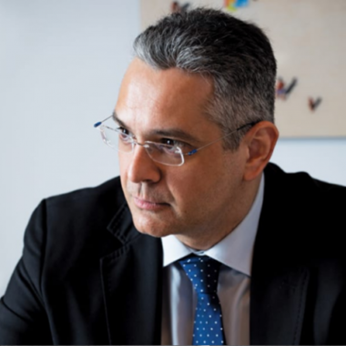 Yannis Mastrogeorgiou Yannis Mastrogeorgiou
Special Secretary for Strategic Foresight at the Presidency of the Government of the Hellenic Republic
Yannis Mastrogeorgiou is the Special Secretary of Foresight in the Presidency of the Greek Government. He was the head of the working group established (Decision 99 / 4-4-2022 (B'1603) for the delivery of the "Greece 2050" project. After the publication of the "Megatrends 2040" study, the Bureau of the Government proceeded to establish the Special Secretariat of Foresight.
From 2019 to 2022, he served as the Secretary General of Communication and Media in the Presidency of the Greek Government.
He was previously the Director General of the Konstantinos Karamanlis Institute of Democracy and director of the think tank “DIKTIO for the reformation of Greece and Europe” (2013-2018).
Yannis has also served as Director of Communications and Special Adviser to the Greek Minister of Education, as well as Special Advisor to the Minister of Development and to the Greek Parliament. He has worked in the field of communications and advertisement in multinational companies and was also a Marshall Memorial Fellow of the German Marshall Fund (GMF).
He has studied history, in the National Kapodestrian University of Athens, international relations, European Political Economy and law in the University of the Aegean and the Athens University of Economics and Business.
He is a PhD candidate of the Science of History and Philosophy of the University of Athens.
His new book Artificial Intelligence and Humans: An endeavour to understand our age will be published this spring by Papadopoulos House.
|